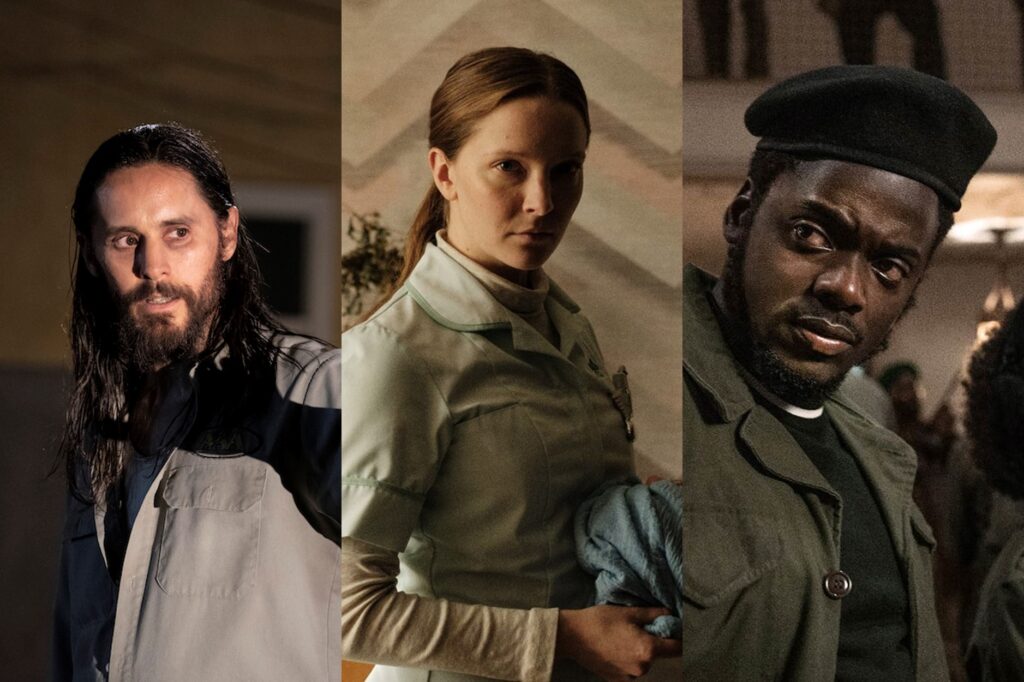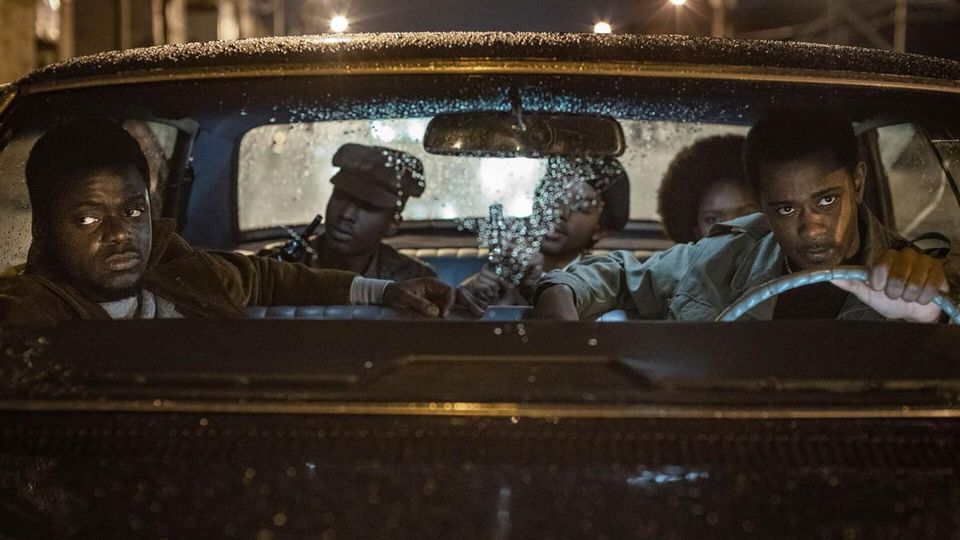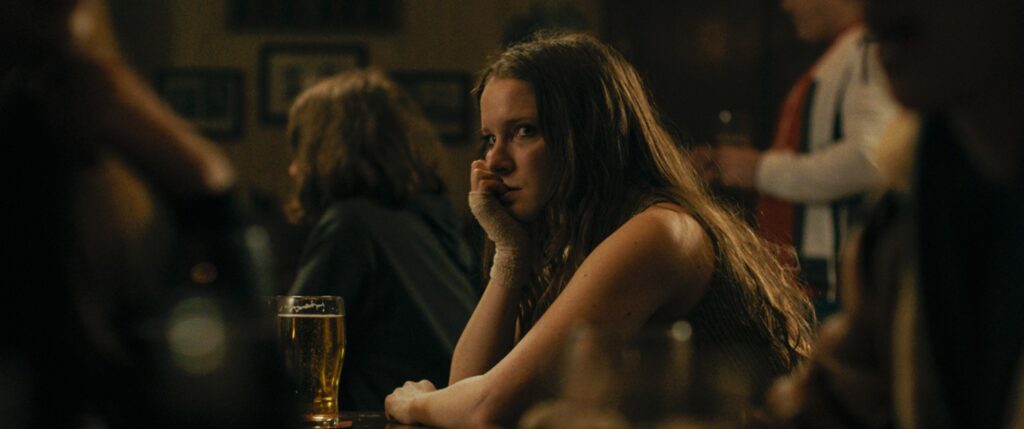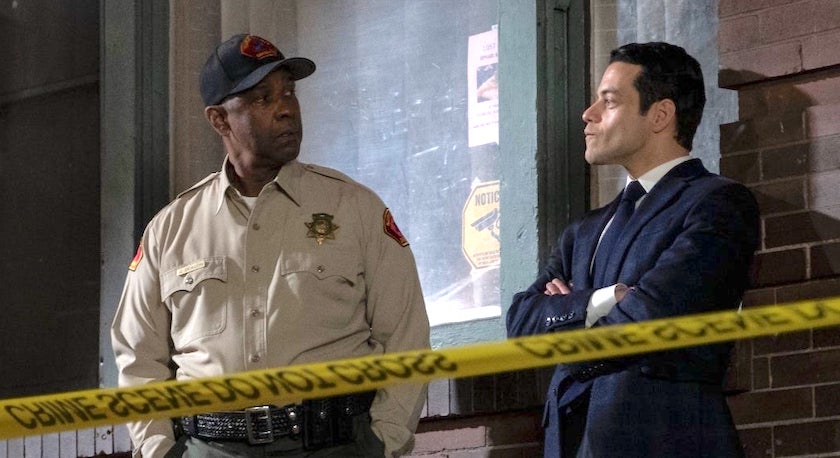
Ordinarily, early February is a cinematic dumping ground. But among the million other things that the COVID-19 pandemic affected, it caused the Oscars to expand their eligibility window by two months, meaning that some high-profile titles just landed on your favorite streaming services. Let’s take a quick run through this past weekend’s newest releases.
Judas and the Black Messiah (HBO Max). The second feature from Shaka King, Judas and the Black Messiah is a contemporary political text that’s also a classical spy thriller. It tells the story of Bill O’Neal (a very fine Lakeith Stanfield), the small-time car thief who became a big-league FBI informant in the late ’60s and infiltrated the Chicago chapter of the Black Panthers, led by Fred Hampton (Daniel Kaluuya). It isn’t subtle about its allegiance; you don’t need a degree in Christian theology to discern which character corresponds to which half of the title.
That isn’t really a complaint; given today’s turbulent climate, I’m comfortable with historical fiction that errs on the side of championing Black figures’ good deeds rather than emphasizing their moral ambiguities. Still, the decision of the screenplay (written by King and Will Berson) to lionize Hampton necessarily limits the film’s depth. Kaluuya, repurposing the lethality he brought to Widows, is an intensely charismatic presence, and he effectively conveys his firebrand’s incendiary appeal. (For a more subdued portrayal of Hampton, check out Kelvin Harrison Jr.’s turn in The Trial of the Chicago 7.) But aside from a lovely scene where Hampton awkwardly flirts with a smitten follower (Dominique Fishback, from The Deuce), King fails to articulate his interiority. He’s a subject, not a character.

Judas and the Black Messiah is more effective when focusing on O’Neal, whom Stanfield plays as alternately terrified, greedy, conflicted, and pathetic. O’Neal is ostensibly the movie’s villain, and a scene where he chows down at a steakhouse underlines his selfishness. But he’s also a patsy, a rube to be manipulated and exploited, and Stanfield brilliantly brings out his gnawing fear as well as his burgeoning doubt. (In a plotty sense, the film resembles one half of The Departed, a connection heightened by the presence of Martin Sheen, who hams it up as J. Edgar Hoover.) King expertly dramatizes the relationship between O’Neal and his fed handler (an excellent Jesse Plemons, supplying his heavy with just a sliver of a conscience), revealing an imbalance of power whose tremors of oppression reverberate far beyond one white G-man and his Black stool pigeon.
As a thriller, Judas and the Black Messiah is uneven; a scene where O’Neal anxiously hotwires a car at gunpoint is suitably suspenseful, but larger set pieces—a shootout with police at Panther headquarters, a nighttime raid with fatal consequences—are visually flat. And a few supporting characters are thinly drawn relative to their importance to the plot. (On the other hand, Lil Rey Howery is splendid in a cameo.) But in exploring the mindsets and desires of two very different Black men—and in examining the inherent tension between the political and the individual—the film is both exciting and thought-provoking. King may not be the second coming, but this movie has plenty to say. Grade: B

Saint Maud (Epix). Faith gets reborn in Saint Maud, the deeply auspicious feature debut from writer-director Rose Glass. A taut and spiky tale of idolatry and obsession, it moves with coiled purpose, not unlike its protagonist, who glides across the screen with the certainty of one touched by the divine. Is she a messenger from God, or a familiar of the devil? It makes little difference; what matters is her otherworldliness, the sense that you’re in the presence of a creature from another earth.
Her name, as you may have guessed, is Maud, and she’s played by Morfydd Clark with supernatural spookiness and alien grace. She receives quite the introduction: The film’s killer opening shot finds her seated a few yards away from a fresh corpse, her pale wrists slathered in blood. Yet aside from that ominous silent prologue, Maud seems to be a competent and devoted public servant, caring for a terminally ill lymphoma patient (Jennifer Ehle) with capability and compassion. Still, there’s something off about her, and Clark, who flashes steely intelligence without showing strenuous effort, heightens the character’s wraithlike quality. She’s a little thing, but when she locks her different-colored eyes on the camera, she can freeze you with her quiet ferocity.
Clark’s performance is the highlight of Saint Maud, but it’s also an impressive calling card for Glass, who exhibits a firm grasp of the horror grammar previously flaunted by her male contemporaries (Robert Eggers, Ari Aster) at the A24 terror factory. She’s highly efficient; Saint Maud runs a brisk 84 minutes, and the sum of its backstory lies in that creepy opening shot, plus a single line of dialogue from a former coworker (“And they know what happened?”). If anything, the movie is overly spare; not a whole lot actually happens, and Glass is so insistent on framing things from Maud’s warped point of view, the constant surreality can feel suffocating.
But then, that’s the point. Wielding an array of cinematic tricks—Dutch angles, forced perspective, crunchy sound design—Glass thrusts you inside Maud’s fractured headspace, making you feel her agony and ecstasy as she either communes with a higher power or just loses her grip on her sanity. It’s a glorious spectacle of madness; Maud’s skin constantly stretches over her face, her eyes roll back in her head, and—in the movie’s most breathtaking scene—she levitates, back arched like the world’s most devout contortionist. (Perhaps the film’s most touching moment arrives near its end, when it primes you for ghastly violence, only to deliver a marvelously tender kiss on the cheek.)
What does it all mean? Does it add up to anything? I’m not sure. But by the time Saint Maud reaches its gripping climax—a beautifully staged sequence involving a beach, a pair of angel wings, and a bottle of hydrogen peroxide—I found myself surrendering to the singularity of its vision. Sometimes, when faced with such blazing omnipotence, your only option is to bow down. Grade: B+

The Little Things (HBO Max). An ugly and grimy thriller riddled with bullet holes and clichés, John Lee Hancock’s The Little Things is a tacky and familiar piece of crime fiction. It is also the best movie its director has made in some time. If that sounds like a contradiction, consider that Hancock’s recent films—which include The Highwaymen, Saving Mr. Banks, and The Blind Side—were cheap and maudlin confections, weighed down by two-dimensional characters and trite themes. The Little Things is no more emotionally sophisticated, but it’s at least genuinely entertaining—partly because its grisly genre material is inherently compelling, partly thanks to the contributions of its overqualified cast.
The story could hardly be more generic. There’s a serial killer on the loose in Los Angeles (the year is 1990, though the only real signifier of the period is the characters’ frequent use of payphones), and two obsessed cops are hot on his trail. One is Joe Deacon (Denzel Washington), a disgraced ex-detective tormented by memories of a cold case; the other is Jimmy Baxter (Rami Malek), a fast-talking, sharp-dressing investigator who commands the respect of his peers. (The well-rounded supporting portfolio includes Chris Bauer, Michael Hyatt, and Natalie Morales.)
Initially, The Little Things seems poised to posit Deacon and Baxter as avatars of diametrically opposed approaches to law enforcement—a collision of old-school intuition and new-age rigor. It quickly abandons that dubious dichotomy, instead turning the two men into willing partners who are unified by their thirst to catch a killer. Like everything else in the movie, it’s old hat, but Washington and Malek breathe a bit of life into the formula, evincing a genuine warmth. Hancock’s script, meanwhile, is peppered with tasty morsels of cop dialogue; I will always have a weakness for films where characters natter about things like ligature marks, post-mortem lividity, and tainted evidence.
Hancock’s approach to all of this is basically imitation-grade David Fincher, which isn’t exactly a putdown, given how good actual David Fincher is. The screenplay is predictable until it isn’t, delivering an unusual third act that disdains the typical chases and catharsis. And while The Little Things is painfully obvious in conceiving Deacon as a man Haunted By His Past, the trope has its purpose; a silent sequence where Deacon imagines long-dead victims residing in his hotel room may be clumsily literal, but it’s still arresting, and one of the film’s few moments of true flair.
The rest of the flair arrives courtesy of Jared Leto, who pops up halfway through as Albert Sparma, a long-haired, hollow-eyed crime junkie who quickly becomes Deacon and Baxter’s prime suspect. Since winning his Oscar seven years ago, Leto’s infrequent work (Suicide Squad, Blade Runner 2049) has teetered between campy and obscene, and his high-wire performance in The Little Things occupies similar territory. Yet if Sparma appears to have been imported from an entirely different movie, it was surely a more lively one, and Leto’s arch flamboyance injects this picture with some much-needed energy. The title derives from Deacon’s supposedly sage advice about what really matters, but in a production as customary as this, it’s the outsized flourishes that linger most. Grade: B-
Jeremy Beck is the editor-in-chief of MovieManifesto. He watches more movies and television than he probably should.
